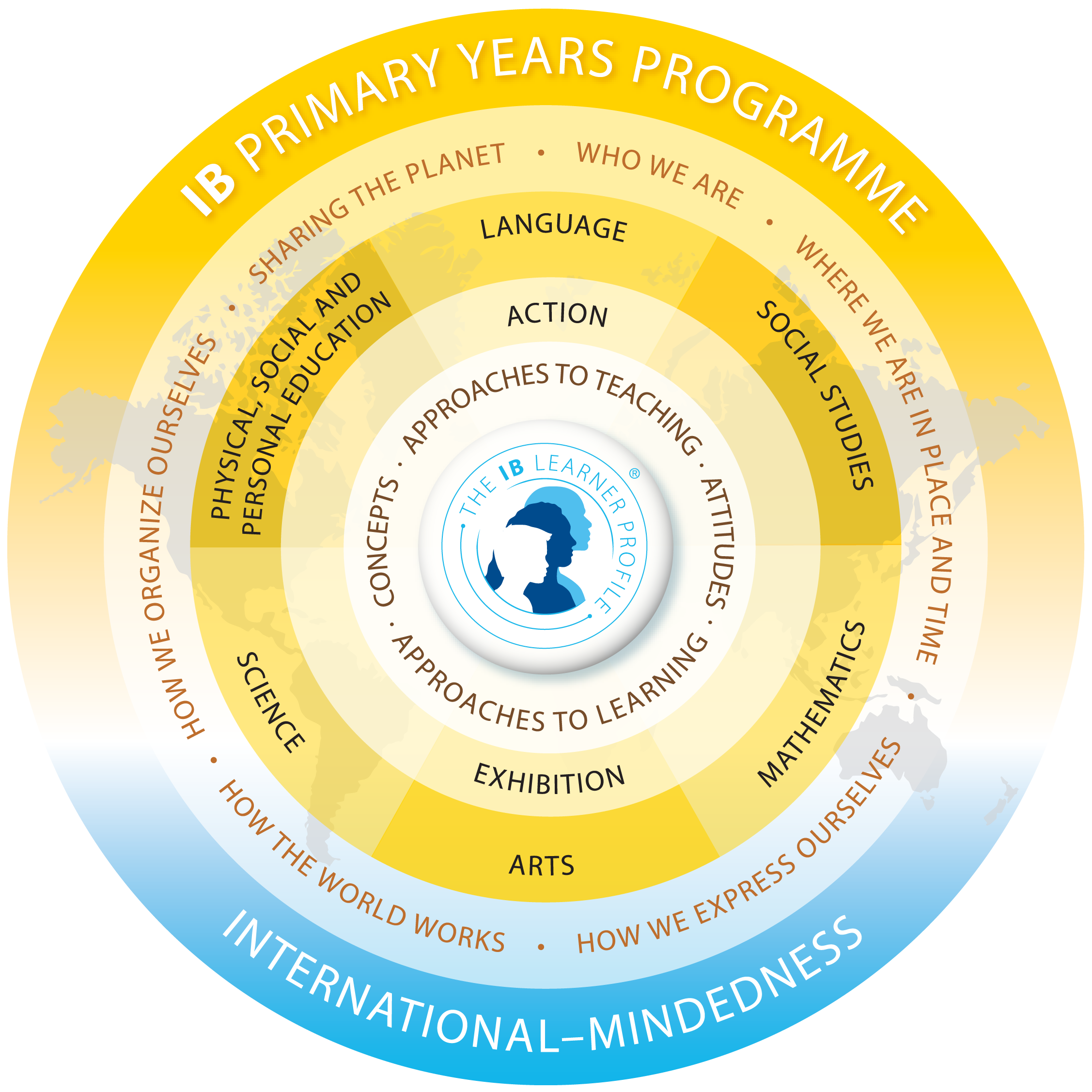IB Primary Years Programme (PYP)

The curriculum of Elementary School is based on the International Baccalaureate Primary Years Programme (PYP). The PYP is an international curriculum framework designed for all children between the ages of 3 and 12 years. The programme focuses on the total growth of the developing child, affecting hearts as well as minds and addressing social, physical, emotional and cultural needs in addition to academic welfare.
In the PYP there is a commitment to a concept driven curriculum as a means of supporting inquiry. The concepts are central to the curriculum and are in the form of key questions that are broad and open-ended. Key concepts of form, function, causation, change, connection, perspective, responsibility and reflection help teachers and students consider different ways of thinking and learning about the world and act as a provocation to extend and deepen student inquiries.
Units of Inquiry
In the PYP most of the teaching and learning centres around the design of the transdisciplinary units of inquiry. Each of these units:
- Stands alone as an engaging, challenging, relevant and significant experience
- Contributes to a coherent, school wide programme of inquiry that is framed in terms of transdisciplinary themes of global significance
- Draws together elements of different subject areas to support the exploration of a central idea
- Is planned by teams of teachers working in collaboration, guided by a set of key questions that is conceptually driven
- Involves students in a range of learning experiences planned in response to the lines of inquiry
- Build’s on prior knowledge of the students
- Is constructed and conducted in a way as to promote positive attitudes and provide opportunities for socially responsible action
- Requires students to reflection and take responsibility for their learning.
Assessment
Students are assessed in many ways so that teachers can build a picture of a student’s achievements, knowledge and understanding. A range of assessment tools and strategies are used which allow students with different learning styles to succeed. All assessments are based on criteria for success, which are shared with the students in an age appropriate manner. Assessments focus on what student can do and inform the teaching and learning experience. Students are assessed on the five essential elements of the PYP.
Assessments include:
- Pre-assessment: identifying what students already know in order to clarify the starting point for teaching and learning experiences.
- Formative assessment: ongoing assessment which helps the teacher to plan for the ongoing needs of the students and to help to plan the next steps for student learning.
- Summative assessments: finding out how far students have progressed at the end of a unit of teaching.
- Self and peer assessment: students are involved in making assessments about their own progress and that of their peers.
Exhibition
In Grade 5, the final year of the PYP at IGBIS, students will engage in five Units of Inquiry and the PYP Exhibition. Students engage in a collaborative, trans-disciplinary inquiry process that is student-led and involves identifying, investigating and offering solutions to real-life issues or problems. This is a significant event in the life of the PYP student, synthesising the essential elements of the PYP and sharing them with the whole school community.
Among other things, the exhibition allows students to:
- Exhibit the attributes of the IB Learner Profile that have been developing throughout the PYP;
- Incorporate key concepts;
- Synthesise aspects of all six transdisciplinary themes;
- Use skills from all five sets of transdisciplinary skills;
- Explore knowledge that is significant and relevant
- Display attitudes that relate to people, the environment and their learning;
- Engage in appropriate courses of action based on outcomes of their project.